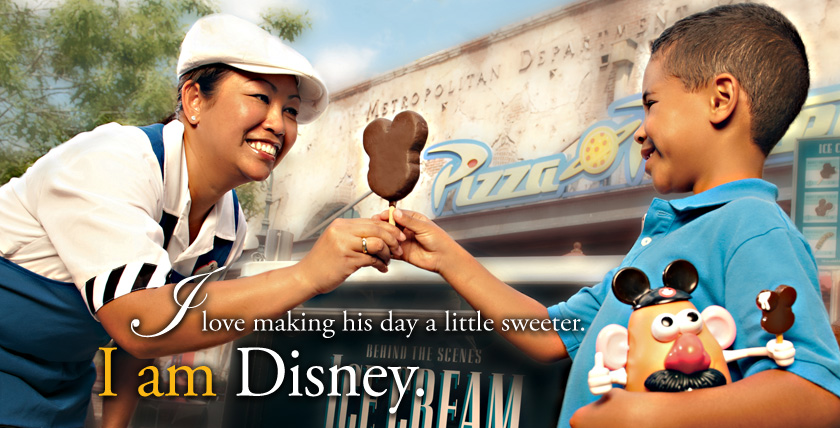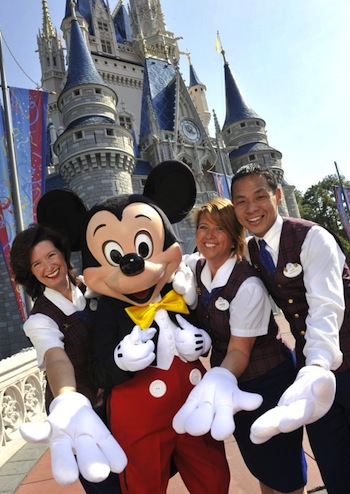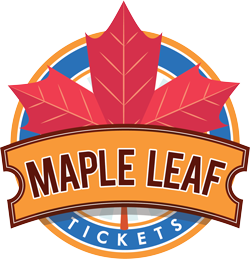Walt Disney World
Getting a Magical Job with FREE Disney World tickets!
So, you want to get a job at Disney World?
Hey, you get free Disney World Tickets!

Back in the really early days when Walt Disney World in Orlando opened in the 1970s…back so far they didn’t even have a casting office but instead directed potential employees to a mobile home-style trailer…there was a popular story.
It went this way:
Job interviewers asked a series of six questions. What they asked made no difference.
The interviewer checked a box.
Sometimes.
When did he check a box?
When his question brought out a smile.
If the applicant smiled for all the six questions, he or she got the job.
Nothing else mattered.
That was a silly notion, of course, but it never hurts to flash a smile during Disney job interviews — no matter how qualified or prepared you are for one job or another.
But that won’t win the job, of course.
If Walt Disney World is “the happiest place on earth” to visit, it must also be an absolutely and positively great place to work.
Yes, some think so.
Others disagree
Whatever you think, we hope you read our last comments on whether or not you want to work there.
Whether you have read what we wrote last, or not, we’ll tell you today how to get your best chance at a job there.
Some of what we’re going to tell you should be of particular help. That’s because it comes from Disney people who do the hiring.
“If you have an interview coming up, do your homework. You don’t have to be an expert on all things Disney, but you should be able to:
- Talk about why you are interested in the role.
- Understand the job description.
- Relate your own experience to the position.”—Disney recruiter
We’ll tell you why your resume should be able to be read in six seconds. And why all your accomplishments, while your job background has be considered, are really not the most important things on your resume.
Perhaps it’s a surprise to you, but your resume should show why an interviewer will be grateful that he or she hired you rather than someone else.
“Include a cover letter even if it’s not required. Make sure your cover letter is specific to the position and, when appropriate, add some creativity or storytelling.” Disney recruiter
Most of what we are going to tell you involves resumes and personal interviews.
Traditional ways to get jobs. But also still valid today.
We’ll also have some suggestions about letters or email guidelines to consider.
There are no guarantees any of this will get you a job, but with these suggestions…as well as some comments from people at Disney who actually hire others…you should get your best odds for landing a job.
Remember that we can’t tell you everything in this space, so do your own homework. Research the issues we raise here.
The Disney hiring procedure
This varies, of course, but common hiring practices usually include phone screenings, and possibly one or two or even more interviews. If you come close to being hired, you might have to take personality and aptitude tests before the final approval.
“We love to hear your passion for our specific industry in your interview!” —Disney Recruiter
A telephone interview sounds routine but don’t just brush it off. A good approach is to know and demonstrate (when you get a chance) your knowledge of Disney values. You might also want to be sure to mention your strong desire to work here.
You’ve done your research here, of course.
The result of this, if you succeed: Disney recruiters schedule face-to-face interviews with applicants who perform well during initial phone interviews. And or do well in written submissions.
“We’re always looking for someone who is interested in making memories for our Guests whether that be through excellent service or through a friendly smile.” Disney Human Resources
Here’s something everyone wants to know: what kind of questions will I get in a personal interview?
No surprise
Because you want to be prepared.
Here are some examples from Disney people:
Q: What should I wear to an interview?
A: It never hurts and usually helps to see what other Disney employees are wearing. In general, classic styles and what are known as business attire are best.
Q: How many interviews can you expect?
A: Depends, of course. But a telephone interview is not out of the question. Common practice is for one telephone interview and two personal interviews, though that varies within the Walt Disney Company.
Q: Should I send communication, such as a thank-you email or card, to the Disney staff that I interview with?
A: Absolutely. That is a necessity. But don’t just send any quick, thoughtless note (we’ll show you later what to say and why this is an often overlooked practice that can help earn you the job you want).
“When interviewing for a position, make sure to do some research on the business and a solid knowledge of the type of work they do. Your research will show that you have a vested interest and a willingness to learn and grow.”—Disney recruiter
Before you get to where you will be answering questions, however, you need to pass the test to get the personal interview.
“A lot of our applicants don’t take the time before writing a letter to find out what we really do, and what we want from others. So just showing that you have even a little understanding of what we do goes a long way to impressing us.” —Disney Recruiter
When it comes to writing, whether it’s emails or old fashioned US letters, the most important point is that there is something for the other person.
Surprise, sure?
 But the real question you are answering is how can you help the interviewer do his or her job? Focus on showing not only what you have done for, say, a desired position as a cook by your past experience. That’s fine. Necessary. But show that you know how this background will help in Disney’s particular operations. You become not just a good candidate…
But the real question you are answering is how can you help the interviewer do his or her job? Focus on showing not only what you have done for, say, a desired position as a cook by your past experience. That’s fine. Necessary. But show that you know how this background will help in Disney’s particular operations. You become not just a good candidate…
But an amazing one
Your letters and resume should always show off any special skills. These might include CPR, other languages in addition to English and anything else that separates you from the ordinary couch potato.
Were you a Boy Scout or maybe one of only six scouts who worked so hard you achieved rare Eagle status? Maybe you volunteered at a hospital as a student nurse or at Habitat for Humanity or at the local food banks and any other effort that demonstrates initiative and community service are skills that might not be used at Disney but show your community spirit. That is always an issue for Disney employees where teamwork and community involvement are always important.
Put them at the beginning of your communications.
You want to catch the eye of the hiring person immediately
“Make sure your résumé showcases how effective you are, not just how busy you are.” —Disney Recruiter
A couple of other points to consider:
- Use numbers whenever you can. Numbers are always selling points (recruiters look for them).
- Disney emphasizes teamwork. So be sure to show how you do it. Again, specifically.
- Check grammar, and spelling, of course. No, Disney won’t hire you because you write with good grammar but a recruiter may eliminate your resume if you wrote that you spent the summer of your senior high school year at “Roys-R-US” selling “Dismal style” sword sets.
Now about that resume.
“We like people who don’t stop being friendly at any point”—Disney Recruiter
Remember this (because it is often forgotten): No resume will get you a job.
Let’s repeat that: no matter how good or how impressive your resume is, it will not by itself get you a job.
Far more likely: it will prevent you from being considered for the job.
The reason is that it takes about six seconds for evaluators to look at your entire life accomplishments. At least what they see on your resume.
So that does make it important
So what you say is important. But so is what you leave out.
So skip the word-wasting cliches such as you are a “change agent” (this has often been a common designation that is frequent enough to make it meaningless).
Also, you can worry all you want, and spend a lot of time on your design, but remember content is king.
Keep this in mind: Resumes with a font size of 11 result in more interviews than ones with smaller or larger type do. That’s not just an opinion. Studies have shown it, over and over. If you want to get more technical, among the easiest types to read are Times, Century and Arial.
“When it comes to fonts on your résumé, I would encourage you to utilize a basic font. Sometimes, when using unique fonts you run the risk of the résumé not formatting correctly when being viewed electronically by recruiters and hiring managers.”—Manager, Disney
Something also to consider: always tell what you can do for Disney, not what Disney can do for you.
So when listing your various accomplishments such as working with young people at the local YMCA, let’s say, be sure to outline what you accomplished. Avoid generalities such as you worked with kids to mention specifics such as you counseled 30 children to teach them not only how to use a bow and arrow but also the rules and etiquette of that particular pastime.
“When applying, carefully read the job description, and tailor your résumé to include the important keywords”—
A Disney Recruiter
Never forget the one-page rule.
Yes you may have a lot to say here but keep it to one page. Studies have consistently shown that you resume will get no more than six seconds of attention. And you don’t have to include everything here, anyway. But what you have to do is get the evaluator’s attention.
Now on to the interview (hopefully).
Easy to say but it should be easier than you think for one reason. You have spent time researching Disney and the demands of the particular job you want.
You know the scope of its operations. You even read the philosophy of Disney.
You did your homework on Facebook, Twitter, LinkedIn, and the company’s website and blog.
After dressing properly, which will help in your recruiter’s first impression, you should be able not only to describe your accomplishments. But also to make small talk. You will be asked personal questions that go beyond what your duties might be as a cast character or a cook.
The interviewers know you have what it takes to do the job, so now’s your chance to inject some personality into what’s written on that resume and cover letter. Feel free to tell him or her what makes you tick.
More questions
We are not urging any canned or robotic answers to questions. You can’t prepare for all of them. But here are a few to give you some practice to at least think about your own answers:
Q: Why do you want to work at Walt Disney World?
A: “For as long as I can remember, I’ve wanted to work here. When I as a small child, I was amazed by the park (if that is the case, fine, otherwise don’t lie). I’ve always enjoyed the way things are run at Walt Disney. And the way people who work here treat everyone so well adds to the overall magical experience. I would like the chance to also make the magic.”
Q: Can you think of a time when you’ve had to put your personal needs aside for someone else?
A: Tell them about how someone such as a friend lost something. You you spent a day finding it, and even though you didn’t find it, you still helped the person replace it for free
Q: What is a problem you’ve had in the past with a manager at work and how did you fix it?
A: “I’ve never had a problem with a manager at work.I’m very easy to get along with and bend over backwards to make my bosses happy.”
Q: You’re working at Disney Space Mountain when it shuts down. A little boy comes to you, distraught, because that’s all he wanted to do. What do you do?
A: “I would offer the child front of the line access at another attraction, but if they’re desperate to go on Space Mountain, I’d use the house phone to call a manager who I would ask to make some sort of arrangement for front of the line at Space Mountain the second it opens. That, or I would give them a certificate of sorts saying that when they return they will be front of the line on it.”
“When interviewing, remember to be Punctual, Prepared and Positive (the 3 P’s)”—Disney Recruiter
Don’t forget at the end of your interview to ask for the job. Do it in a positive way, of course.
The interviewer will not be offended. This will make him or her sure that you really want the job.
And that thank you letter?
It’s often neglected as an afterthought. And usually not given the attention it deserves because it can be valuable tool.
A few rules for thank you’s
Do it quickly, within 24 hours so the interview is still fresh.
Bring up some specifics such as shared interests in coin collecting or some other hobby.
Share some others interests you may have had with the interviewer.
Reinforce your interest and enthusiasm for the position available.
Highlight your selling points and how well you fit with the job.
If you are aware of any weaknesses you had — say the interviewer said you lacked a background in something, for instance — cover those areas.
Highlight how well you fit the available position.
Do you think there were any misunderstandings about yourself? This is a chance to correct them.
End with your enthusiasm for the job and sincere gratitude or feelings of appreciation.
Add any noteworthy details of your background that you think would help in the job (and help the interviewer to hire you so he can also look good).
Sure, this is a lot. But keep in short and concise.
And don’t forget to proofread. You might write an amazing letter, but a lot of misspelled words might defeat your purpose. Have someone else read it for corrections and even suggestions. And then review your final draft.
Then smile.
Maybe no one will see you, but you’ve done a good job…to get the job and lets not forget those free Disney World tickets are major perk!###
